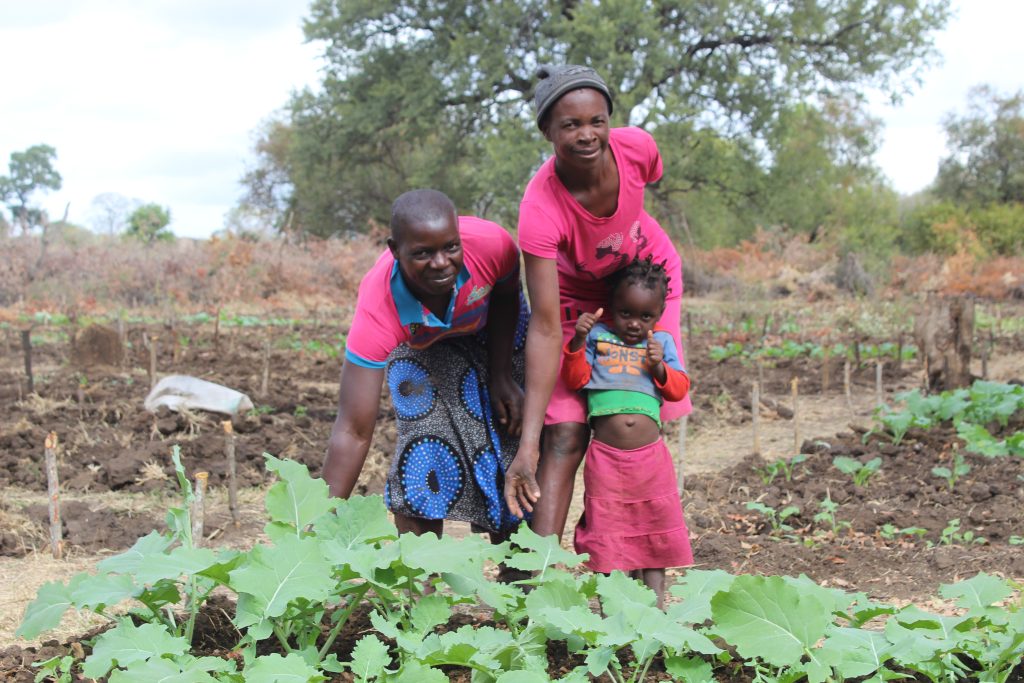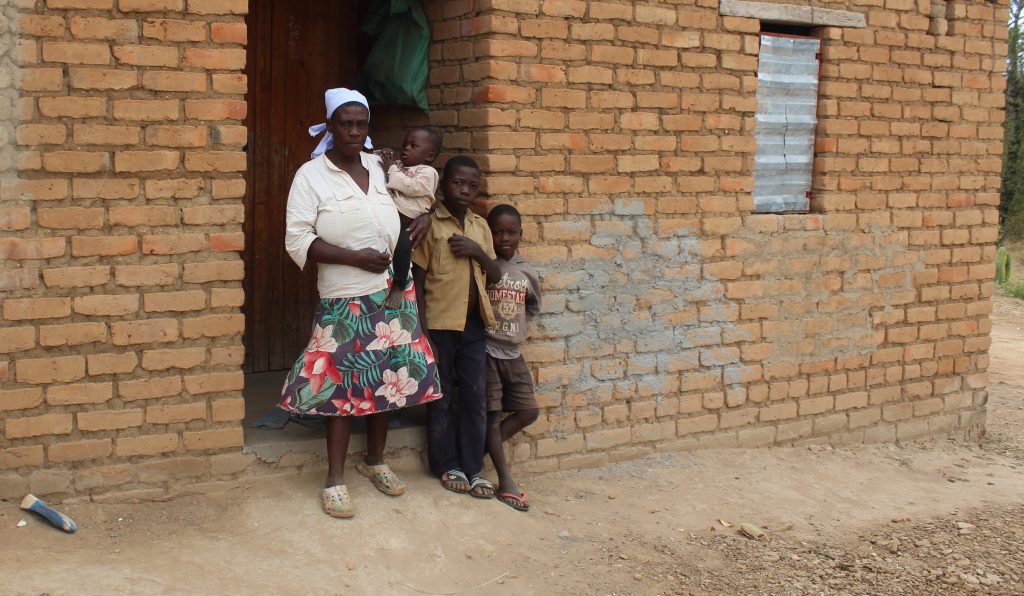by Maxine F. Kundishora
Life in Village 10, Ward 17 of Chiredzi District – south east of the Masvingo Province, was once a relentless struggle, offering little hope especially to women. These women, striving to make ends meet, participated in small-scale income generating activities through Village Savings and Loans Associations (VSLA). In these associations, groups of ten members each pooled collective funds, contributing $1 US dollar each per month, amounting to only $10 US dollars for the group. The modest contributions enabled them to purchase small items such as snacks and sweets for resale. Despite their enterprising spirit, the income generated was not enough to fully sustain their livelihoods, offering limited opportunities for substantial change.
Driven by the need to enhance Ward 17 community livelihood, Africa AHEAD and partners initiated a weir construction project that, while primarily aimed at stabilizing crisis-affected households, ultimately nurtured the growth and empowerment of women.
This remarkable 6-month project came to fruition in the year of 2023 through the generous funding from the United States Agency for International Development (USAID), in partnership with Action Contre la Faim (ACF), Nutrition Action Zimbabwe (NAZ), Africa AHEAD and the Government of Zimbabwe. The Vinga weir was designed to support agricultural activities, improve quality of life and provide a multipurpose water point for the community, serving both domestic and productive needs.
During the project’s implementation, the initiative provided temporary employment to over 200 community members, predominantly women, through a cash-for-work program which was a significant lifeline given their limited means of sustenance.
Alin Parichi, a 53-year-old woman with six children to support and Sarudzai Museve, a 44-year-old mother of five, exemplified the challenges faced by many women in the village. They confirmed that the small profits earned from their small business ventures were barely made significant change. “The income generated through our small businesses offered no prospects for further development of our livelihoods.” said Alin.
However, the USAID funded project marked a significant turning point, igniting a beacon of hope as women participated in the construction on the Vinga weir, earning $65 US dollars for 15 working days of 4 hours per day — income they could not generate through their small businesses.
The project created temporary employment opportunities for women and reduced their financial dependency. “It was such an impactful experience towards our empowerment as women. Though transporting water, stones and sand to the site was physically taxing, the work created income opportunities for the village women” said Alin Parichi.
While the project initially provided financial benefits through the cash-for-work program, the completion of the weir opened new avenues for women entrepreneurship.Thanks to the water supply from the small-scale dam, they were able to start community nutritional gardens.
“With water from the weir, we now grow vegetables like carrots, rape, covo and tomatoes for consumption and sale to neighbouring villages such as Village 1,2,3 and 4, where they do not have a nearby water source” said Sarudzai.

Some of the village women (and child) showing off their garden produce irrigated by the Vinga Weir
The Vinga Weir was constructed at a much needed time for the community as the ripple effects of the El Niño induced drought pose a significant threat to agriculture, leading to reduced rainfall and poor crop yields. This can devastate communities and threaten food security, however, the Vinga weir has offers vast water supply and sustainable agricultural productivity in the face of the climate challenges.
Besides gardening, the women of Village 10 are pursuing other agricultural related projects funded by the income from the cash-for-work project. “I am grateful for the opportunity to contribute to this project, as the fruits of my labour have enabled me to pay our monthly VSLA payments which we reviewed from $1US dollars to $5US dollars each, raising $300US dollars for our group of 10 in six months.” Said Alin. Sarudzai added to say “We set aside part of the $300US dollars for occasional loans with a 20% interest and used the other part to start a chicken business, buying chicks for breeding and resale.”
Sarudzai explained “We managed to buy 50 broilers day-old chicks, 100kgs starter feed, 100kgs finisher feed, medicine for the chickens and wire to build the chicken run. Despite losing ten chickens to the new castle disease after 5 weeks of breeding, we sold 40 chickens at 5 US dollars each, earning 200US dollars from the sales”
Through a combination of cash-for-work earnings and shared profits from the chicken business, the women were able to allocate funds towards their personal upkeep and household development, surpassing their previous earnings from their small businesses prior to the project. All it took was the project facilitated by Africa AHEAD and partners to shape the future of the community members in a positive direction towards economic empowerment of women. This strategic investment fostered a sense of empowerment and self-sufficiency amongst the women.
Sarudzai expressed immense gratitude for the intervention and support from the partners. “In 2023, faced with desperation, I borrowed $150 US dollars for my daughter, Polite’s O’ Level exam registration fees, unsure how to repay it. Thanks to the income generating projects initiated as a result of the Vinga weir, I managed to clear my debts. By the grace of God, Polite attained passes in 5 subjects and has progressed to Lower 6.” testified the overjoyed Sarudzai.
Alin, also testified the that the project will have an unforgettable memory for her and her family. “Due to lack of funds, progress on my household construction came to a halt in 2023. However, I am proud to say I managed to buy 10 bags of cement costing $11.50 US dollars each and moved a step closer to completion, as I managed to pave my bedroom and dining floor. I never imagined this to have been possible. I owe my gratitude to the project implemented by the partners.” she recounted with pride.

Dreams realized: Alin Parichi (53) and her children stand proudly in front of their dining room with a paved floor, made possible by income generated from Vinga Weir project.
Some wins, small as they may seem, are big milestones for the likes of Alin Parichi and Sarudzai Museve – humble Village 10 women, working hard to better their livelihoods. They continue to shine and embrace their entrepreneurial spirit as they have been empowered to do more for themselves. “Our future aspiration is to sustain our gardening efforts, scaling up to cultivate larger quantities for increased profit. Moreover, with continued support from partners, we aim to venture into fish farming, considering our proximity to the Vinga weir” said Sarudzai, her laughter carrying a hint of shyness. Undoubtedly, the potential is boundless for empowered women with the necessary resources.
